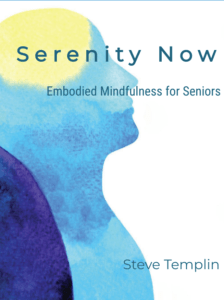It becomes more difficult to exercise self-discipline when your brain function and body chemistry are negatively influenced by stress.
During the stress response, which could be triggered by something as ordinary as an upsetting phone call, our neurology and chemistry become altered and self-control becomes more of a challenge.
A recent University of Zurich study published in the journal Neuron showed that during stress the hormone cortisol goes up which increases cravings and fat storage while our pre-frontal brain activity goes down. The pre-frontal brain is where self-control and discipline are generated. This double whammy delivers a serious one two punch to healthy choice making.
What can we do to inhibit the stress response, shift brain and body chemistry, and support self-control?
Here are three suggestions.
Take a slow, conscious breath.
A slow breath ‘in’ of about six seconds followed by a slow breath ‘out’ of about six seconds has a balancing influence on the autonomic nervous system (ANS). Four seconds isn’t slow enough for most individuals to positively influence their ANS.
This positive neurological shift inhibits the stress response, lowers cortisol, moves brain activity to the pre-frontal lobes and increases self-control and well-being.
Write expressively about what you feel.
Giving voice to feelings through writing reduces our unconscious stress load. Regular writing, just getting the negative thoughts and feelings down on paper, is another method for balancing the ANS and reducing stress.
Regular writing also allows us to gently but consistently give voice to the ignored and buried feelings that often fuel the symptoms of mindbody syndromes, like chronic pain and inflammation.
Acupuncture
Ideally, I would include acupuncture since it provides a quick jump-start for all of these desirable shifts in brain function and body chemistry. Then your breathing and writing practices will positively reinforce those changes.
Remember, when in doubt … breathe … six seconds ‘in’ and six seconds ‘out’.
 Steven Templin, D.O.M., Dipl. Ac. specializes in Acupuncture and Limbic Brain Reprogramming to address the roots of chronic pain and illness. He offers a comprehensive mind-body program for addressing the underlying inflammation, toxicities, and stress-induced causes of most pain and illness.
Steven Templin, D.O.M., Dipl. Ac. specializes in Acupuncture and Limbic Brain Reprogramming to address the roots of chronic pain and illness. He offers a comprehensive mind-body program for addressing the underlying inflammation, toxicities, and stress-induced causes of most pain and illness.
He places special emphasis on resolving the stress response and repairing adrenal gland and digestive system function to address the root causes of many common and often difficult to treat illnesses.
He translates emerging research in the fields of Epigenetics, Energy Psychology, and Functional Nutrition into effective practices that you can perform at home.
You can work with Dr. Templin in his Lakeland office, or online. You can visit his website at www.stevetemplin.com and contact him via email at drtemplin@gmail.com.
You can schedule an office visit with Dr. Templin by calling 863-838-2779.

 Steve is a retired Doctor of Oriental Medicine, Acupuncture Physician, and HeartMath Trauma-Sensitive Certified Practitioner with over 35 years of clinical experience in the fields of Energy Medicine, Energy Psychology, and Biofeedback.
Steve is a retired Doctor of Oriental Medicine, Acupuncture Physician, and HeartMath Trauma-Sensitive Certified Practitioner with over 35 years of clinical experience in the fields of Energy Medicine, Energy Psychology, and Biofeedback. 